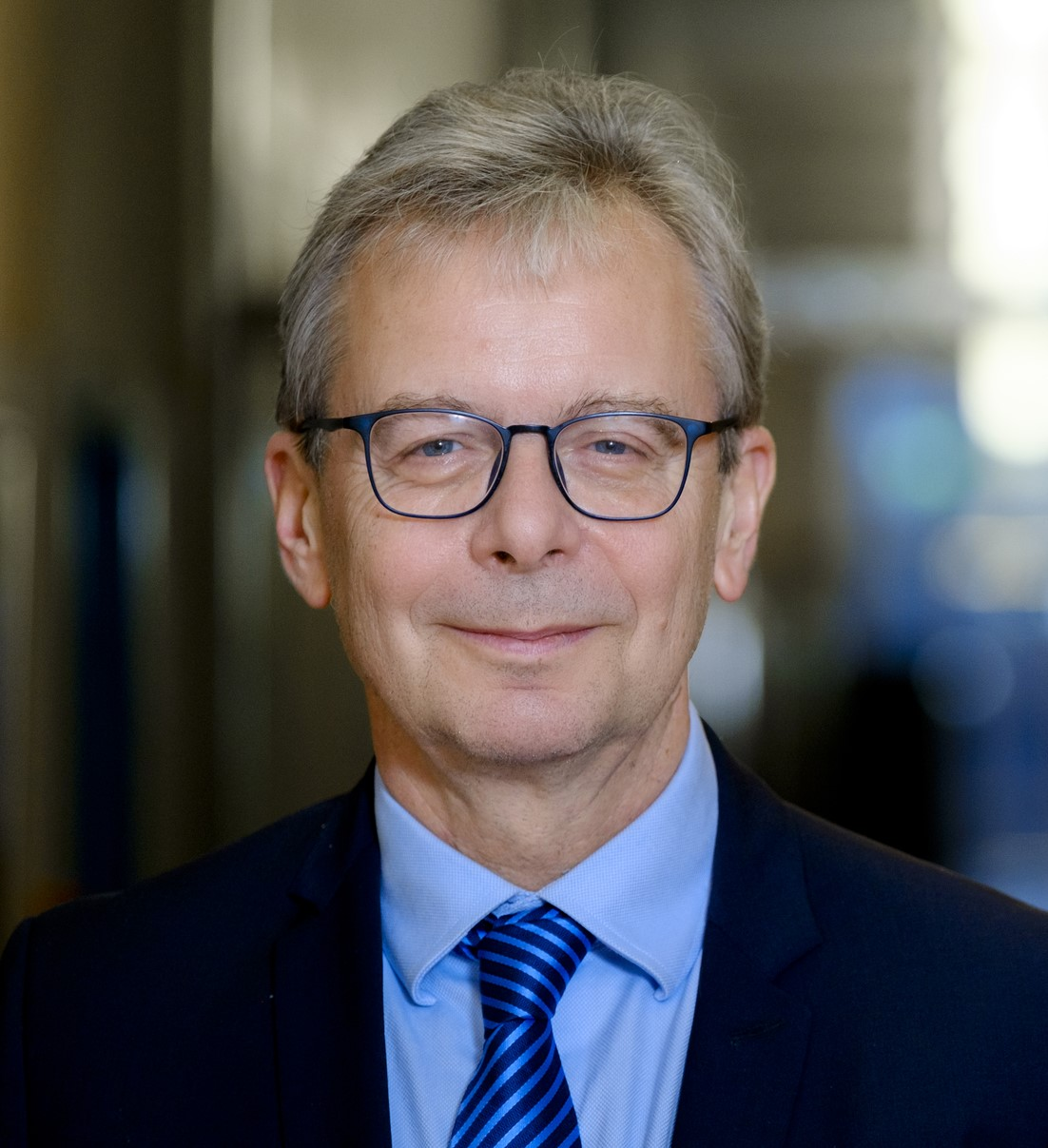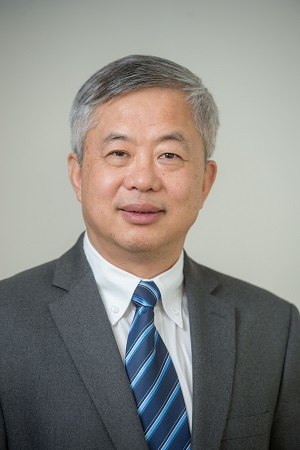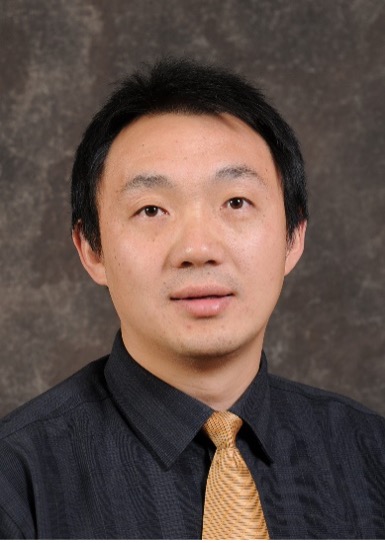
Jón Atli Benediktsson and Gabriele Cavallaro
The University of Iceland
Title: Advancing Geoscience through Large-Scale AI and Remote Sensing with Supercomputing
Time: 08:45-09:45, June 19, 2024
Location: H102, Háskólatorg / University Centre, University of Iceland
Abstract: The rapid proliferation of data in the new information era has increased the complexity of data-driven problems across various fields of science and engineering. This development has led to a paradigm shift in AI, moving towards unsupervised and self-supervised representation learning, as well as multimodal learning. Significant advancements have emerged not only in mainstream Natural Language Processing and Computer Vision but also in Earth observation applications. These advancements exploit the synergies between self-supervised learning and the expanded availability of High-Performance Computing (HPC) systems, resulting in the emergence of AI Foundation Models (FMs). Originating from the concept of building upon an existing 'foundation', these models are developed by training on large and diverse datasets. This training enables them to capture a broad spectrum of informative features, making them extremely versatile and applicable across multiple domains. This keynote will provide an overview of the current efforts toward FMs for Earth observation at the 'Remote Sensing Simulation and Data Lab' of the Icelandic HPC community (University of Iceland), which collaborates closely with the Jülich Supercomputing Centre at the Forschungszentrum Jülich in Germany. The presentation will highlight the necessary tools and efforts required for the development of FMs, showcasing interdisciplinary research that intersects AI, supercomputing, and remote sensing applications. This research aims to enhance our understanding of complex Earth processes and advance the development of Digital Twins of Earth.
Biography: Professor Jón Atli Benediktsson received the Cand. Sci. degree in electrical engineering from the University of Iceland, Reykjavik, in 1984, and the M.S.E.E. and Ph.D. degrees in electrical engineering from Purdue University, West Lafayette, IN, USA, in 1987 and 1990, respectively. Currently, he is the President and Rector of the University of Iceland where he is Professor of Electrical and Computer Engineering. His research interests are in image analysis, image processing, remote sensing and biomedical analysis of signals. He has published extensively in those fields. Professor Benediktsson is a Highly Cited Researcher from 2018 (Clarivate Analysis) and received many awards for his research and publications. He was the 2011–2012 President of the IEEE Geoscience and Remote Sensing Society and Editor-in-Chief of the IEEE Transactions on Geoscience and Remote Sensing from 2003 to 2008. Professor Benediktsson, is currently Senior Editor of the Proceedings of the IEEE. He is a co-founder of the biomedical start-up company Oxymap (www.oxymap.com). Prof. Benediktsson is a Fellow of the IEEE, Fellow of SPIE and Fellow of AAIA. He is a member of Academia Europea, Sigma Xi and Tau Beta Pi.

Chang Wen Chen
The Hong Kong Polytechnic University
Title: Vision-based Control of UAV for 3D Scene Exploration and Reconstruction
Time: 10:15-11:15, June 19, 2024
Location: H102, Háskólatorg / University Centre, University of Iceland
Abstract: This talk shall focus on recent research endeavors in the vision-based control of UAVs for 3D scene exploration and reconstruction in the spirit of object goal navigation. More specifically, this talk shall introduce a hierarchical semantic understanding approach to UAV-based exploration and 3D scene reconstruction for time-critical disaster search and rescue in an urban setting. In particular, a UAV-based geometric and semantic perception of the 3D scene is accomplished via onboard visual sensors which will be followed by a rescue task-specific semantic understanding algorithm to obtain a 3D scene graph indicating potential trapped subjects and their environments. The control of UAVs is achieved by an integrated visual servoing scheme to execute its flying missions to acquire the best new images for 3D reconstruction while flying over the scene. A graphics-based simulation platform is constructed to model disaster-stricken scenes in layered 3D structures consisting of trapped human subjects, destructed structures, and flying UAVs. Two task-specific algorithmic assessment models are also developed to evaluate the performance of the overall system. We shall also show the potential of incorporating AI generative diffusion techniques into action generation for UAVs to navigate over unknown 3D scenes.
Biography: Chang Wen Chen is currently Chair Professor of Visual Computing at The Hong Kong Polytechnic University. Before his current position, he served as Dean of the School of Science and Engineering at The Chinese University of Hong Kong, Shenzhen from 2017 to 2020, and concurrently as Deputy Director at Peng Cheng Laboratory from 2018 to 2021. Previously, he has been an Empire Innovation Professor at the State University of New York at Buffalo (SUNY) from 2008 to 2021 and the Allan Henry Endowed Chair Professor at the Florida Institute of Technology from 2003 to 2007. He received his BS degree from the University of Science and Technology of China in 1983, his MS degree from the University of Southern California in 1986, and his PhD degree from the University of Illinois at Urbana Champaign (UIUC) in 1992. He has served as an Editor-in-Chief for IEEE Trans. Multimedia (2014-2016) and IEEE Trans. Circuits and Systems for Video Technology (2006-2009). He has received many professional achievement awards, including ten (10) Best Paper Awards or Best Student Paper Awards in premier publication venues, the prestigious Alexander von Humboldt Award in 2010, the SUNY Chancellor’s Award for Excellence in Scholarship and Creative Activities in 2016, and UIUC ECE Distinguished Alumni Award in 2019. He is an IEEE Fellow (2005), a SPIE Fellow (2007), and a Member of Academia Europaea (2021).

Maria Prandini
Politecnico di Milano
Title: Distributed Optimization for Addressing Emerging Challenges in the Energy Sector
Time: 13:30-14:30, June 19, 2024
Location: H102, Háskólatorg / University Centre, University of Iceland
Abstract: The integration of renewable energy sources in the electrical grid is challenging its operators and calling for a direct involvement of prosumers to maintain a balance between energy demand and generation. In this talk, we shall illustrate recent results in distributed optimization and show their potential for impact in balancing services provision by aggregates of prosumers, addressing both privacy and scalability issues.
Biography: Maria Prandini is a Full Professor and Chair of the Automation and Control Engineering Study Program at Politecnico di Milano, Italy. She received her Ph.D. degree from the University of Brescia, Italy, in 1998. She held visiting positions at Delft University of Technology (1998), Cambridge University (2000), UC Berkeley (1998-200, 2005), ETH Zurich (2006), TUM (2017), and University of Oxford (2022-25). Her research interests include stochastic hybrid systems, randomized algorithms, distributed and data-driven optimization, multi-agent systems, and the application of control theory to transportation and energy systems. She is currently IFAC President-elect. Previously, she served as Vice-President for IFAC and IEEE CSS, and as a member of SIGBED Board of Directors. She is IEEE CSS Distinguished Member and a Fellow of IEEE.

Yang Shi
University of Victoria
Title: Distributed Model Predictive Control Framework for Multi-Agent Systems: Design and Applications
Time: 11:15-12:15, June 19, 2024
Location: H102, Háskólatorg / University Centre, University of Iceland
Abstract: The past decade has witnessed a phenomenal interest in developing distributed model predictive control (MPC) methods for a team of cooperative agents, e.g., a fleet of autonomous vehicles. Compared to centralized MPC, distributed MPC essentially assigns the computational load to multiple sub-controllers that are ‘‘connected’’ together and can share information via networks, thus fulfilling the real-time requirement of the overall large-scale control system. In this talk, firstly, several new design techniques of the distributed MPC design will be presented: robustness enhancement, compensation for network-induced constraints, event-triggered design. Secondly, the application of distributed MPC to autonomous underwater vehicles (AUV-s), unmanned aerial vehicles (UAV-s) will be introduced. Some of the implementation issues will be addressed. Lastly, some conclusions and comments on future research will be presented.
Biography: Yang SHI received his B.Sc. and Ph.D. degrees in mechanical engineering and automatic control from Northwestern Polytechnical University, Xi’an, China, in 1994 and 1998, respectively, and the Ph.D. degree in electrical and computer engineering from the University of Alberta, Edmonton, AB, Canada, in 2005. Currently, he is a Professor in the Department of Mechanical Engineering, University of Victoria, Victoria, BC, Canada. His current research interests include networked and distributed systems, model predictive control (MPC), cyber-physical systems (CPS), robotics and mechatronics, navigation and control of autonomous systems (AUV and UAV), and energy system applications. Dr. Shi received the University of Saskatchewan Student Union Teaching Excellence Award in 2007, the Faculty of Engineering Teaching Excellence Award in 2012 at the University of Victoria (UVic), the 2023 REACH Award for Excellence in Graduate Student Supervision and Mentorship. He is the recipient of the JSPS Invitation Fellowship (short-term) in 2013, the UVic Craigdarroch Silver Medal for Excellence in Research in 2015, the 2017 IEEE Transactions on Fuzzy Systems Outstanding Paper Award, the Humboldt Research Fellowship for Experienced Researchers in 2018; CSME Mechatronics Medal (2023); IEEE Dr.-Ing. Eugene Mittelmann Achievement Award (2023). He is an IFAC Council Member; Vice President of IEEE IES, and the Chair of IEEE IES Technical Committee on Industrial Cyber-Physical Systems (2018-2022). Currently, he was Co-Editor-in-Chief of IEEE Transactions on Industrial Electronics (2017-2023); he also serves as Associate Editor for Automatica, IEEE Transactions on Automatic Control, Annual Review in Controls, etc. He is a Distinguished Lecturer of IES. He is a Fellow of IEEE, ASME, CSME, Engineering Institute of Canada (EIC), Canadian Academy of Engineering (CAE), and a registered Professional Engineer in British Columbia, Canada.